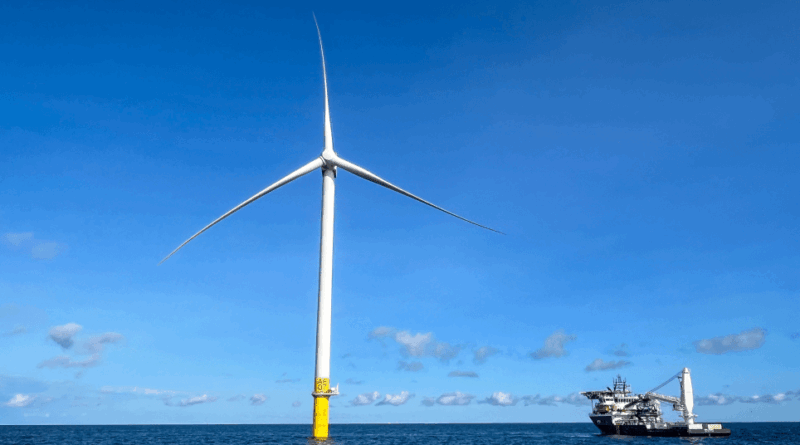The US Department of the Interior has ordered a halt to the Revolution Wind project, an offshore wind initiative led by the Danish firm Ørsted that is already 80% complete. This decision, announced by Matthew Giacona, Acting Director of the Bureau of Ocean Energy Management (BOEM), raises questions about the reasoning behind the suspension and the implications for renewable energy development in the region.
On August 22, 2025, Giacona issued a letter mandating Ørsted to “halt all ongoing activities” related to the project while addressing “concerns” that have arisen during a review process linked to a presidential memorandum. The lack of clarity regarding these concerns has led to speculation and calls for further investigation.
Context of the Decision
The Revolution Wind site is strategically located off the coasts of Rhode Island and Massachusetts, with Connecticut also involved as a project partner. The complexity of the site selection process, which considers environmental impacts, national security, and competing interests, further complicates the decision to pause construction. BOEM had previously issued a lease for this area in 2013, indicating that thorough assessments had been conducted at that time.
Giacona has emphasized that the suspension is necessary to address national security interests, stating, “In particular, BOEM is seeking to address concerns related to the protection of national security interests of the United States.” This claim has prompted skepticism, particularly given that no significant military issues had been identified in the region during earlier assessments.
Analysts are now questioning whether similar national security concerns have been raised regarding the Coastal Virginia Offshore Wind (CVOW) project, which is also under construction. With Naval Station Norfolk located nearby, one would expect heightened scrutiny. However, political dynamics may play a role in the administration’s focus on Democratic-led states like Rhode Island and Connecticut, as opposed to Republican-led Virginia, where Governor Glenn Youngkin has been a strong advocate for CVOW.
Political and Economic Implications
The halt to the Revolution Wind project could have significant economic repercussions. A permanent suspension would not only delay the delivery of clean energy but also threaten hundreds of jobs in Rhode Island’s port sector and thousands more across Ørsted’s extensive supply chain in the United States. The urgency for local leaders, including Connecticut’s Governor Ned Lamont and Rhode Island’s Governor Daniel McKee, is evident as they publicly oppose the stop-work order.
As the situation unfolds, historical context adds to the intrigue. Following the Interior Department’s stop-work order on the Empire Wind project in New York earlier this year, the order was reversed after Governor Kathy Hochul committed to not obstructing future developments related to a natural gas pipeline proposal. This raises the question of whether political negotiations may similarly influence the fate of the Revolution Wind project.
Furthermore, the timing of this decision coincides with broader geopolitical considerations. In 2025, there was a renewed interest from the US government in annexing Greenland, a territory governed by Denmark, which could explain the sudden emergence of national security concerns regarding Ørsted, a state-owned enterprise partially controlled by the Danish government.
The situation is further complicated by recent developments involving California, where Governor Gavin Newsom announced a Memorandum of Understanding with Denmark on the same day as the halt order. This agreement focuses on cooperation in the green economy, suggesting a potential rift between state and federal energy policies.
As stakeholders await clarification from the Department of the Interior, the future of the Revolution Wind project hangs in the balance. The implications of this decision extend beyond energy production, touching on national security, local economies, and international relations. The coming weeks will likely see increased scrutiny and possibly a push for answers regarding the administration’s rationale behind this controversial halt.








































































